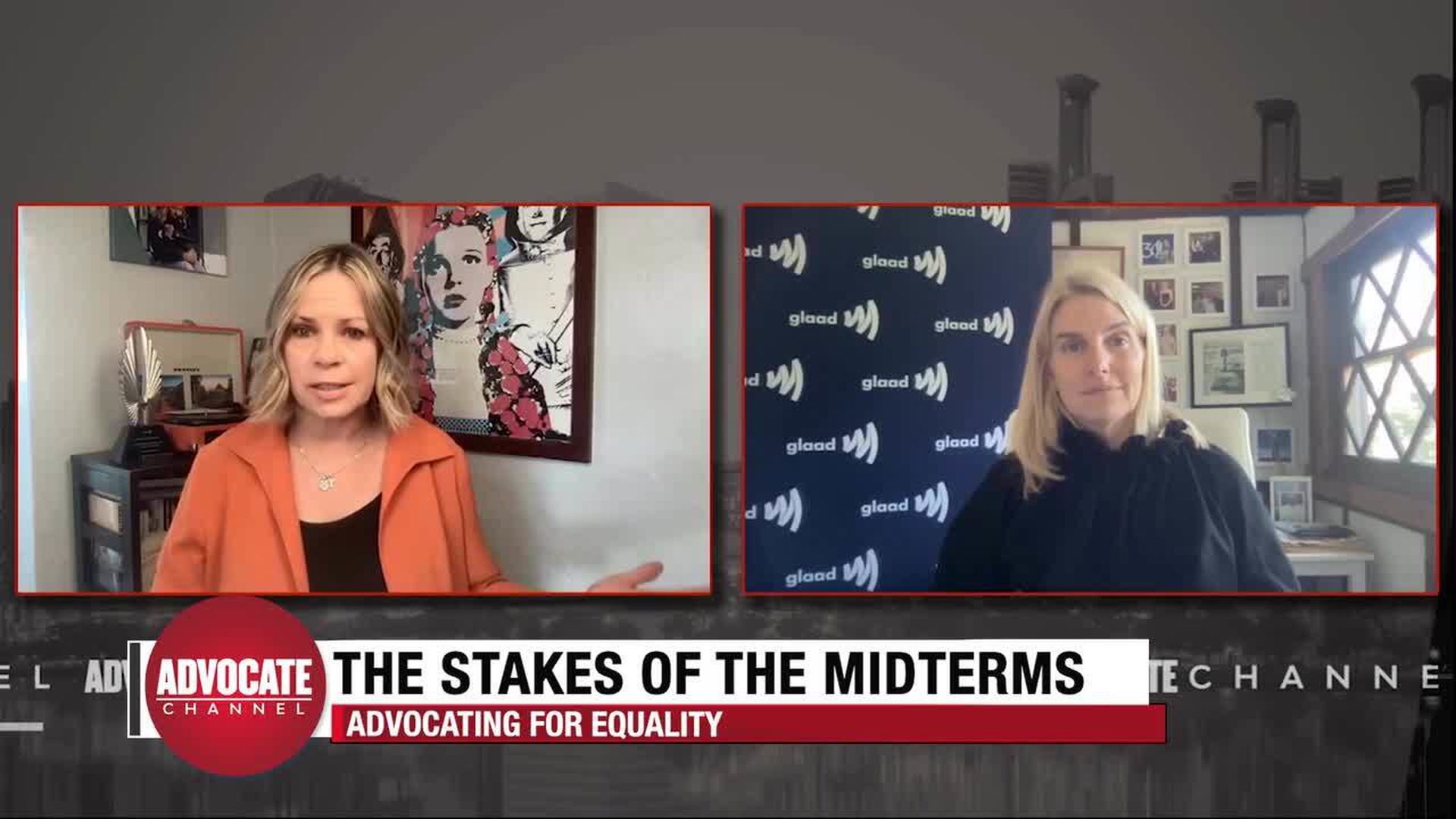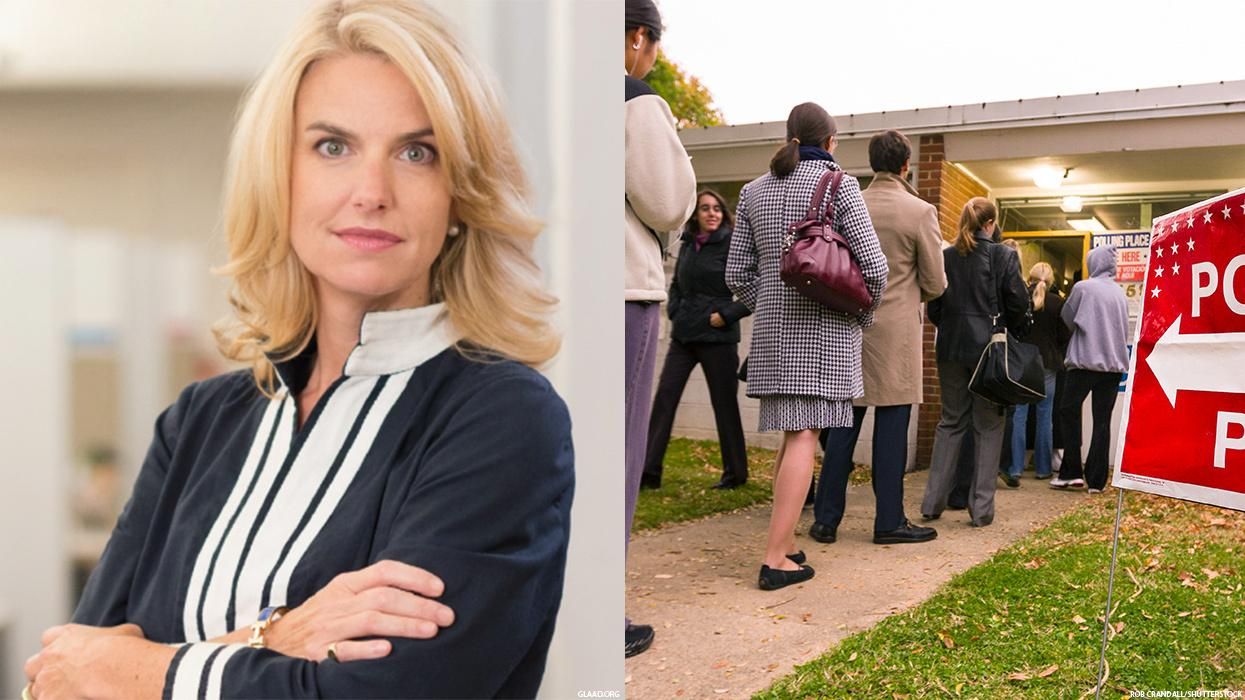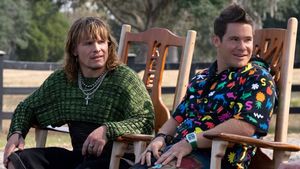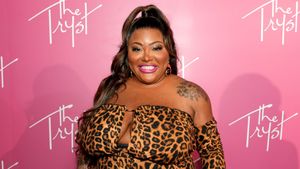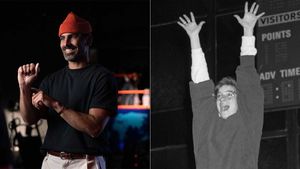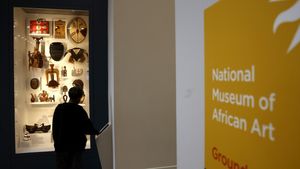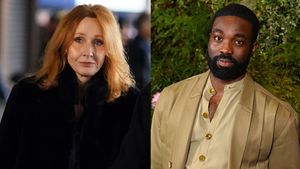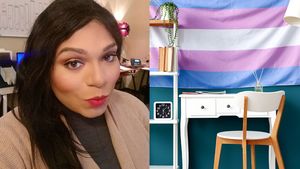With the midterm elections less than 50 days away, activists are pushing for LGBTQ+ individuals to make their way to the polls. GLAAD president and CEO Sarah Kate Ellis recently sat down with Tracy E. Gilchrist of Advocate Today to discuss the pressing issues facing voters.
Despite LGBTQ+ voters being the determining factor in the 2020 presidential election, the upcoming midterms are proceeded by a conservative movement across the country to restrict LGBTQ+ discussion and healthcare from minors.
Following Florida's controversial "Don't Say Gay" bill, barring discussion of LGBTQ+ identities in classrooms, GLAAD is encouraging the LGBTQ+ community to vote with the "I Say Vote" campaign, which aims to hold elected officials accountable by encouraging voter turnout among queer individuals.
"We have a tremendous amount of political weight and power when we show up at the ballot boxes," Ellis says.
The "I Say Vote" campaign features prominent celebrities such as Ariana DeBose, Sheryl Lee Rapl, and Laverne Cox as a way to "utilize our strongest names and allies" to encourage voter turnout among the LGBTQ community.
A report issued by GLAAD found that 83 percent of LGBTQ+ registered voters planned to participate in the midterm elections. Following the overturning of Roe v. Wade, and the ongoing MPXV outbreak, Ellis shares that midterm investment has skyrocketed.
"Once we've seen Roe v. Wade be undone by the Supreme Court -- when you think about the rights that the LGBTQ community has at a federal level, they're held together with tape by the Supreme Court," she says. "Nine justices decide whether or not we are able to get married, or if we are able to hold jobs in this country. And when we can see a very hostile Supreme Court against human rights, we get very, very concerned."
Ellis says the proposed "Respect for Marriage Act," a bill that would codify same-sex marriage in U.S. law, was brought forth out of the urgent needs to protect gay rights, yet the Senate continuously delays their vote on it.
"What's at stake for us as the LGBTQ community is our very marriages, our right to work in this country, and protection of our youth," Ellis says. "Because at the state level, we have to fight back on what's happening to our kids by these lawmakers and politicians. It's disgusting and irreprehensible."
Lawmakers in some states have already restricted or outright banned transgender healthcare, particularly in trans youth. In fact, several hospitals have received threats from far-right extremists over gender-affirming care being available to minors.
Drawing inspiration from Florida's education policies, several states nationwide have also implemented bans on discussion of queer identities in classrooms, including bans on LGBTQ books deemed "inappropriate", despite the increasing amount children identifying as LGBTQ.
"When we look at Gen Z and the millennials, more and more not only do they identify as LGBTQ+, but they identify as allies. And that means when they show up to the ballot box, they're going to be voting in favor of their friends who are LGBTQ," Ellis shares.
Despite the attacks on transgender individuals specifically, Ellis says that the LGBTQ community is standing united. Not just as queer people, but as people of color, women, immigrants, and all minorities threatened by human rights violations.
"One thing that we've noted in the LGBTQ community is that we're always stronger together," Ellis says. "When we come together, we have the power. ... Think about how valuable your vote is if the other side is trying so hard to make it impossible for you to vote."
Watch the full interview below.
